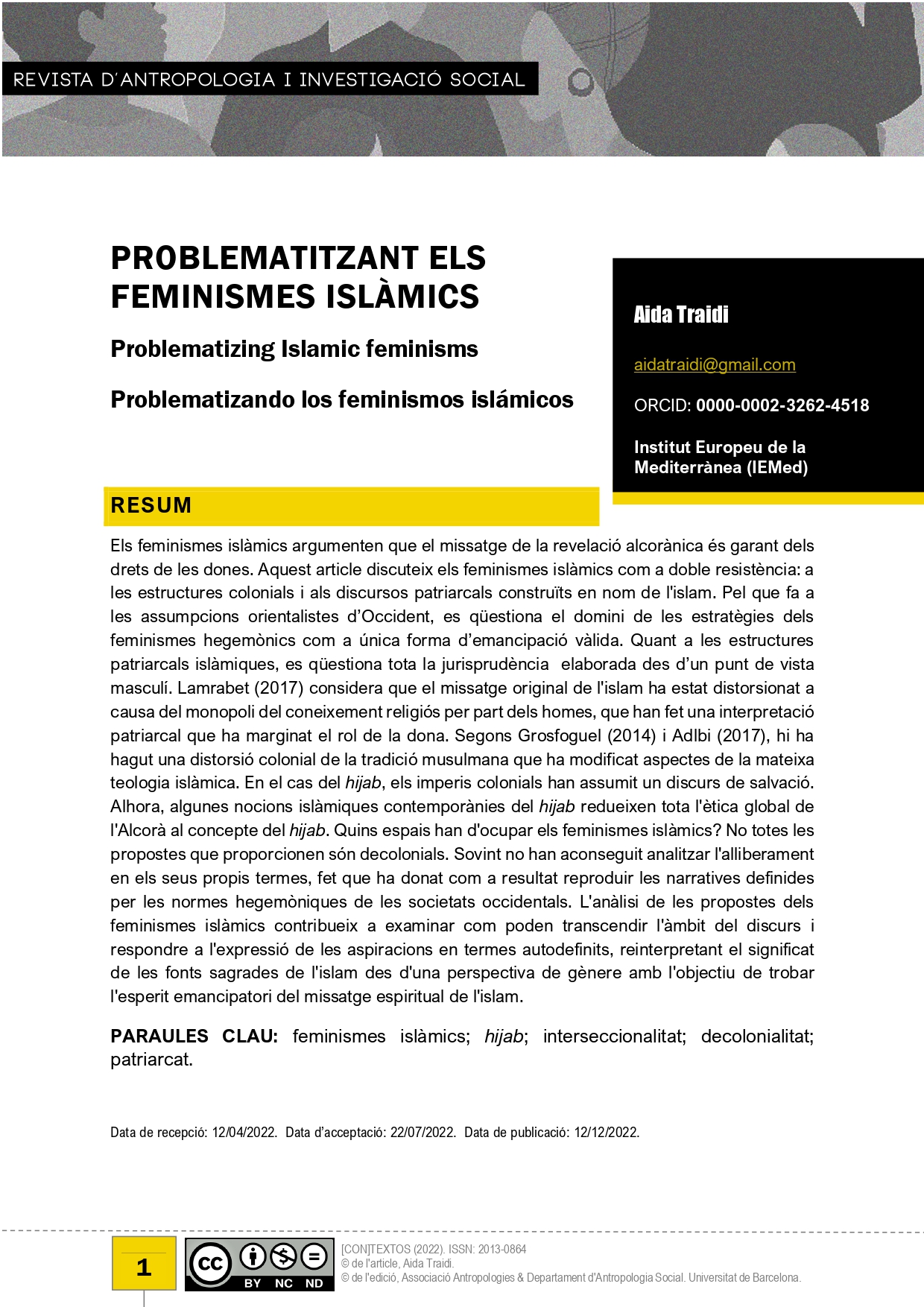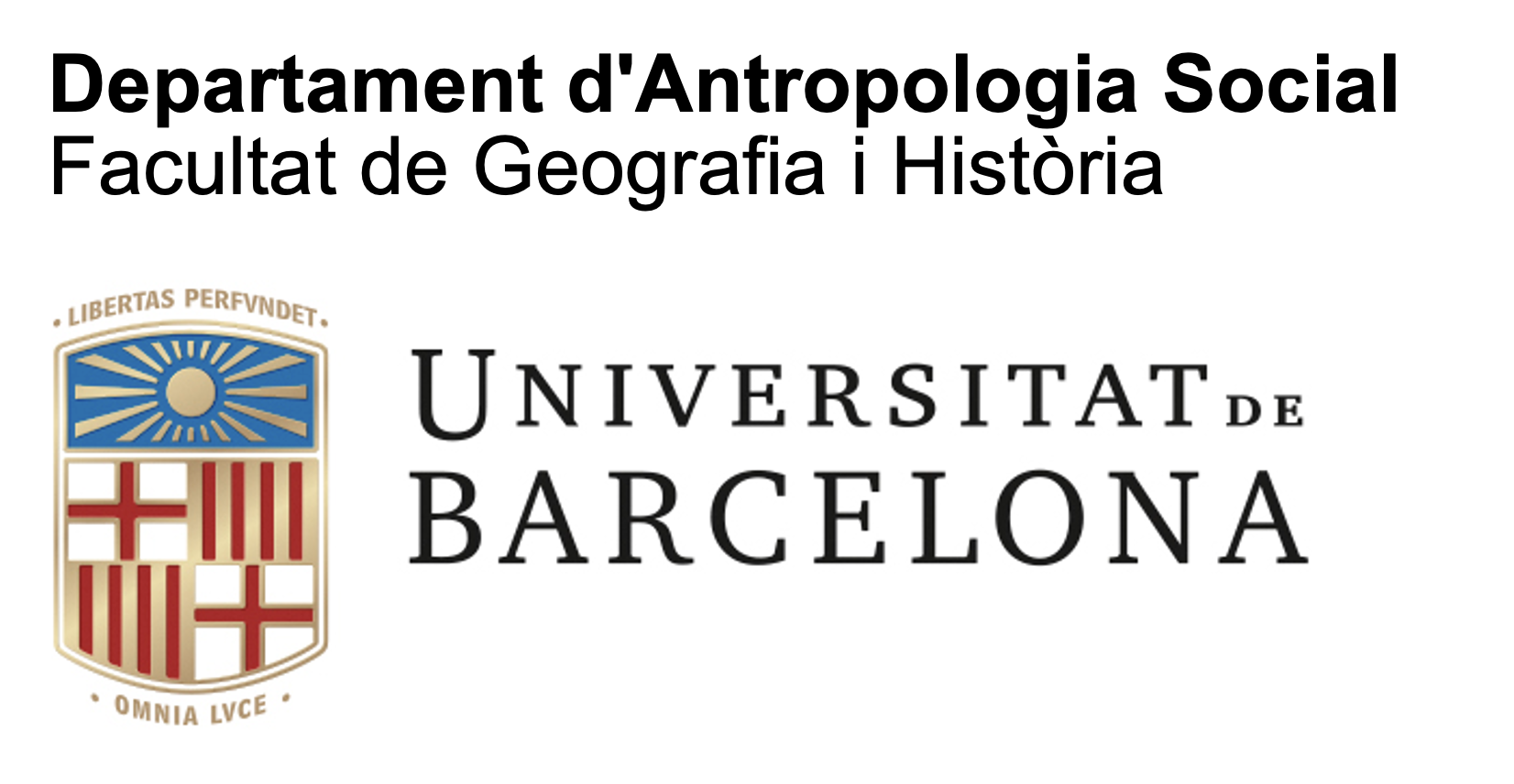Problematitzant els feminismes islàmics
DOI:
https://doi.org/10.1344/test.2022.11.01-18Resum
Els feminismes islàmics argumenten que el missatge de la revelació alcorànica és garant dels drets de les dones. Aquest article discuteix els feminismes islàmics com a doble resistència: a les estructures colonials i als discursos patriarcals construïts en nom de l'islam. Pel que fa a les assumpcions orientalistes d’Occident, es qüestiona el domini de les estratègies dels feminismes hegemònics com a única forma d’emancipació vàlida. Quant a les estructures patriarcals islàmiques, es qüestiona tota la jurisprudència elaborada des d’un punt de vista masculí. Lamrabet (2017) considera que el missatge original de l'islam ha estat distorsionat a causa del monopoli del coneixement religiós per part dels homes, que han fet una interpretació patriarcal que ha marginat el rol de la dona. Segons Grosfoguel (2014) i Adlbi (2017), hi ha hagut una distorsió colonial de la tradició musulmana que ha modificat aspectes de la mateixa teologia islàmica. En el cas del hijab, els imperis colonials han assumit un discurs de salvació. Alhora, algunes nocions islàmiques contemporànies del hijab redueixen tota l'ètica global de l'Alcorà al concepte del hijab. Quins espais han d'ocupar els feminismes islàmics? No totes les propostes que proporcionen són decolonials. Sovint no han aconseguit analitzar l'alliberament en els seus propis termes, fet que ha donat com a resultat reproduir les narratives definides per les normes hegemòniques de les societats occidentals. L'anàlisi de les propostes dels feminismes islàmics contribueix a examinar com poden transcendir l'àmbit del discurs i respondre a l'expressió de les aspiracions en termes autodefinits, reinterpretant el significat de les fonts sagrades de l'islam des d'una perspectiva de gènere amb l'objectiu de trobar l'esperit emancipatori del missatge espiritual de l'islam.
PARAULES CLAU: feminismes islàmics; hijab; interseccionalitat; decolonialitat; patriarcat.
Descàrregues

Descàrregues
Publicades
Com citar
Número
Secció
Llicència
Drets d'autor (c) 2022 Aida Traidi

Aquesta obra està sota una llicència internacional Creative Commons Reconeixement-NoComercial-SenseObraDerivada 4.0.
Els autors que publiquen en aquesta revista estan d'acord amb els termes següents:
L’autor/a [o els autors/es] conserva els drets d’autoria, i concedeix a (Con)textos: revista d'antropologia i investigació social els drets de la primera publicació de l’article.
L'autor/a autoritza a la reproducció i difusió dels seus articles en serveis d'indexació i abstracts, bases de dades acadèmiques i repositoris en els quals participa la revista en l'actualitat o en un futur. A partir del No 13, els textos es difondran amb la llicència de Creative Commons - Reconeixement (CC-by) que permet la reproducció, distribució i comunicació pública sempre que es reconegui l'autor i la revista. Els articles dels números de l'1 al 12 es van publicar amb una llicència Creative Commons Reconeixement-NoComercial-SenseObraDerivada (CC-by-nc-nd).
Així mateix, els/les autors/es poden dipositar la versió final acceptada per a publicació en repositoris institucionals o temàtics d'accés obert.
(Con)textos: revista d'antropologia i investigació social no accepta cap responsabilitat pels punts de vista i les declaracions fetes pels autors en els seus treballs.






